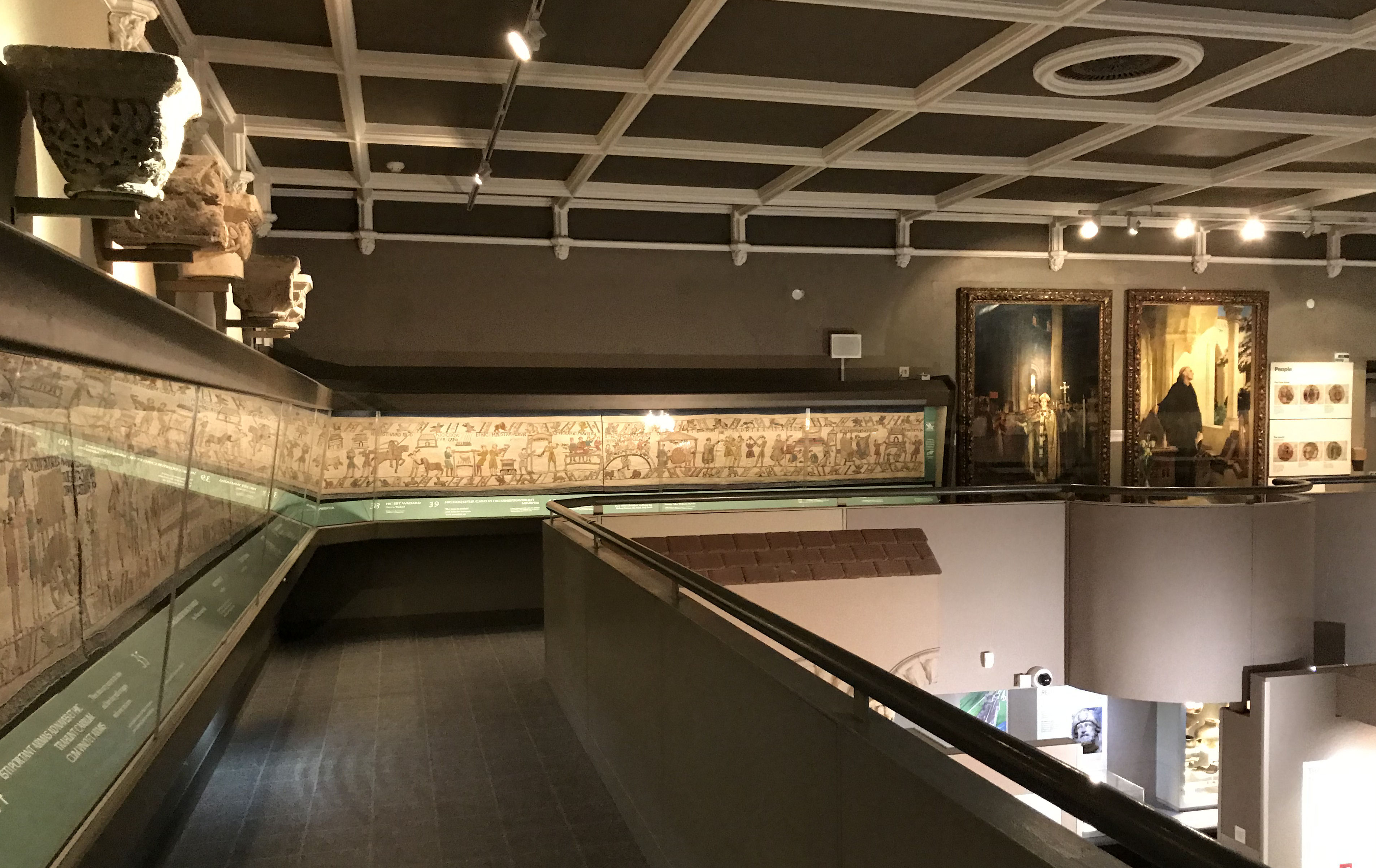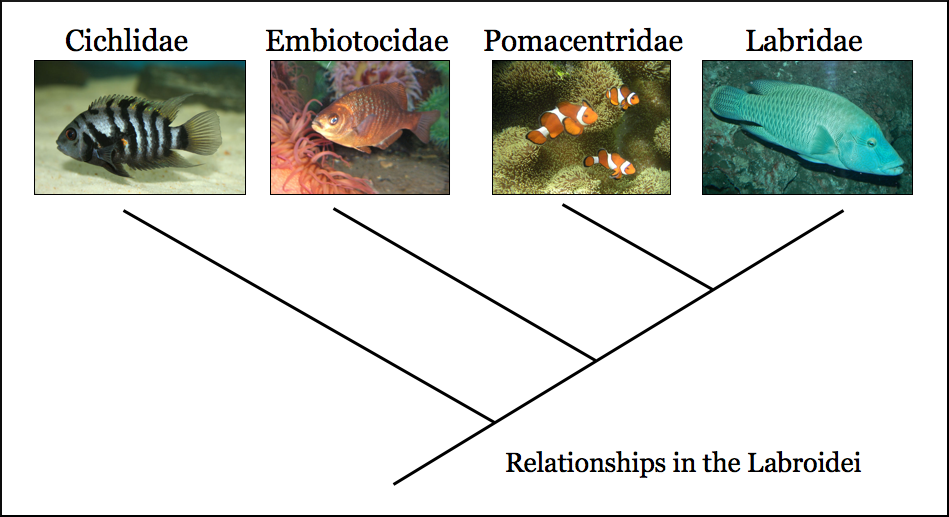|
William Alfred Cunnington
William Alfred Cunnington (1877–1958) was a British naturalist and anthropologist who is mainly known for his work as a zoologist who worked primarily on crustacea. He graduated from the University of London in 1921 as a Doctor of Science in zoology. He was a member of an expedition to Lake Tanganyika in 1904-1905 and later took part in an expedition to Bolivia and Paraguay in 1926–1927. He was a demonstrator in zoology at Cambridge University. As well as his biological studies while he was on the African expedition he took an interest in the culture of the local people and collected amy objects which he donated to a number of British museums including Reading Museum and the Pitt Rivers Museum. He has been honoured by having a number of fish species named after him, including the cichlid Cichlids are fish from the family Cichlidae in the order Cichliformes. Cichlids were traditionally classed in a suborder, the Labroidei, along with the wrasses ( Labridae), in the order Pe ... [...More Info...] [...Related Items...] OR: [Wikipedia] [Google] [Baidu] |
British People
British people or Britons, also known colloquially as Brits, are the citizens of the United Kingdom of Great Britain and Northern Ireland, the British Overseas Territories, and the Crown dependencies.: British nationality law governs modern British citizenship and nationality, which can be acquired, for instance, by descent from British nationals. When used in a historical context, "British" or "Britons" can refer to the Ancient Britons, the indigenous inhabitants of Great Britain and Brittany, whose surviving members are the modern Welsh people, Cornish people, and Bretons. It also refers to citizens of the former British Empire, who settled in the country prior to 1973, and hold neither UK citizenship nor nationality. Though early assertions of being British date from the Late Middle Ages, the Union of the Crowns in 1603 and the creation of the Kingdom of Great Britain in 1707 triggered a sense of British national identity.. The notion of Britishness and a shared Brit ... [...More Info...] [...Related Items...] OR: [Wikipedia] [Google] [Baidu] |
Anthropologist
An anthropologist is a person engaged in the practice of anthropology. Anthropology is the study of aspects of humans within past and present societies. Social anthropology, cultural anthropology and philosophical anthropology study the norms and values of societies. Linguistic anthropology studies how language affects social life, while economic anthropology studies human economic behavior. Biological (physical), forensic and medical anthropology study the biological development of humans, the application of biological anthropology in a legal setting and the study of diseases and their impacts on humans over time, respectively. Education Anthropologists usually cover a breadth of topics within anthropology in their undergraduate education and then proceed to specialize in topics of their own choice at the graduate level. In some universities, a qualifying exam serves to test both the breadth and depth of a student's understanding of anthropology; the students who pass are pe ... [...More Info...] [...Related Items...] OR: [Wikipedia] [Google] [Baidu] |
Zoologist
Zoology ()The pronunciation of zoology as is usually regarded as nonstandard, though it is not uncommon. is the branch of biology that studies the Animal, animal kingdom, including the anatomy, structure, embryology, evolution, Biological classification, classification, Ethology, habits, and distribution of all animals, both living and extinction, extinct, and how they interact with their ecosystems. The term is derived from Ancient Greek , ('animal'), and , ('knowledge', 'study'). Although humans have always been interested in the natural history of the animals they saw around them, and made use of this knowledge to domesticate certain species, the formal study of zoology can be said to have originated with Aristotle. He viewed animals as living organisms, studied their structure and development, and considered their adaptations to their surroundings and the function of their parts. The Greek physician Galen studied human anatomy and was one of the greatest surgeons of the a ... [...More Info...] [...Related Items...] OR: [Wikipedia] [Google] [Baidu] |
Crustacea
Crustaceans (Crustacea, ) form a large, diverse arthropod taxon which includes such animals as decapods, seed shrimp, branchiopods, fish lice, krill, remipedes, isopods, barnacles, copepods, amphipods and mantis shrimp. The crustacean group can be treated as a subphylum under the clade Mandibulata. It is now well accepted that the hexapods emerged deep in the Crustacean group, with the completed group referred to as Pancrustacea. Some crustaceans (Remipedia, Cephalocarida, Branchiopoda) are more closely related to insects and the other hexapods than they are to certain other crustaceans. The 67,000 described species range in size from '' Stygotantulus stocki'' at , to the Japanese spider crab with a leg span of up to and a mass of . Like other arthropods, crustaceans have an exoskeleton, which they moult to grow. They are distinguished from other groups of arthropods, such as insects, myriapods and chelicerates, by the possession of biramous (two-parted) limbs, and by ... [...More Info...] [...Related Items...] OR: [Wikipedia] [Google] [Baidu] |
University Of London
The University of London (UoL; abbreviated as Lond or more rarely Londin in post-nominals) is a federal public research university located in London, England, United Kingdom. The university was established by royal charter in 1836 as a degree-awarding examination board for students holding certificates from University College London and King's College London and "other such other Institutions, corporate or unincorporated, as shall be established for the purpose of Education, whether within the Metropolis or elsewhere within our United Kingdom". This fact allows it to be one of three institutions to claim the title of the third-oldest university in England, and moved to a federal structure in 1900. It is now incorporated by its fourth (1863) royal charter and governed by the University of London Act 2018. It was the first university in the United Kingdom to introduce examinations for women in 1869 and, a decade later, the first to admit women to degrees. In 1913, it appointe ... [...More Info...] [...Related Items...] OR: [Wikipedia] [Google] [Baidu] |
Lake Tanganyika
Lake Tanganyika () is an African Great Lake. It is the second-oldest freshwater lake in the world, the second-largest by volume, and the second-deepest, in all cases after Lake Baikal in Siberia. It is the world's longest freshwater lake. The lake is shared among four countries—Tanzania, the Democratic Republic of the Congo (DRC), Burundi, and Zambia, with Tanzania (46%) and DRC (40%) possessing the majority of the lake. It drains into the Congo River system and ultimately into the Atlantic Ocean. Etymology "Tanganika" was the name of the lake that Henry Morton Stanley encountered when he was at Ujiji in 1876. The name first originated from the Bembe language when they arrived in South Kivu around the 7th century, they discovered the lake and started calling it “êtanga ‘ya’ni’â” which means “a big river” in their Bantu language. Stanley found also other names for the lake among different ethnic groups, like the Kimana, the Yemba and the Msaga. An alt ... [...More Info...] [...Related Items...] OR: [Wikipedia] [Google] [Baidu] |
Reading Museum
Reading Museum (run by the Reading Museum Service) is a museum of the history of the town of Reading, in the English county of Berkshire, and the surrounding area. It is accommodated within Reading Town Hall, and contains galleries describing the history of Reading and its related industries, a gallery of artefacts discovered during the excavations of Calleva Atrebatum (Silchester Roman Town), a copy of the Bayeux Tapestry, finds relating to Reading Abbey and an art collection. History of the museum Reading Town Hall was built in several phases between 1786 and 1897, although the principal facade was designed by Alfred Waterhouse in 1875. In 1879, the foundation stone was laid for a new wing containing a library and museum, and the museum duly opened in 1883. The museum displayed a large eclectic collection from the late Horatio Bland. Three art galleries were added in further extension in 1897. In 1975, the civic offices moved out of the Town Hall to Reading Civic Centre. T ... [...More Info...] [...Related Items...] OR: [Wikipedia] [Google] [Baidu] |
Pitt Rivers Museum
Pitt Rivers Museum is a museum displaying the archaeological and anthropological collections of the University of Oxford in England. The museum is located to the east of the Oxford University Museum of Natural History, and can only be accessed through that building. The museum was founded in 1884 by Augustus Pitt Rivers, who donated his private collection to the University of Oxford with the condition that a permanent lecturer in anthropology must be appointed. Edward Burnett Tylor thereby became the first lecturer in anthropology in the UK following his appointment to the post of Reader in Anthropology in 1885. Museum staff are still involved in teaching archaeology and anthropology at the university. The first curator of the museum was Henry Balfour. A second stipulation in the Deed of Gift was that a building should be provided to house the collection and used for no other purpose. The university therefore engaged Thomas Manly Deane, son of Thomas Newenham Deane who, together ... [...More Info...] [...Related Items...] OR: [Wikipedia] [Google] [Baidu] |
Cichlid
Cichlids are fish from the family Cichlidae in the order Cichliformes. Cichlids were traditionally classed in a suborder, the Labroidei, along with the wrasses ( Labridae), in the order Perciformes, but molecular studies have contradicted this grouping. The closest living relative of cichlids is probably the convict blenny, and both families are classified in the 5th edition of ''Fishes of the World'' as the two families in the Cichliformes, part of the subseries Ovalentaria. This family is both large and diverse. At least 1,650 species have been scientifically described, making it one of the largest vertebrate families. New species are discovered annually, and many species remain undescribed. The actual number of species is therefore unknown, with estimates varying between 2,000 and 3,000. Many cichlids, particularly tilapia, are important food fishes, while others, such as the ''Cichla'' species, are valued game fish. The family also includes many popular freshwater aquariu ... [...More Info...] [...Related Items...] OR: [Wikipedia] [Google] [Baidu] |
Cunningtonia
''Cunningtonia longiventralis'' is a species of cichlid endemic to Lake Tanganyika in East Africa where it is found near rocky shores. It eats floating plankton. This species reaches a length of TL. It can also be found in the aquarium trade. it is the only known member of its genus. The generic name honours the British zoologist and anthropologist William Alfred Cunnington William Alfred Cunnington (1877–1958) was a British naturalist and anthropologist who is mainly known for his work as a zoologist who worked primarily on crustacea. He graduated from the University of London in 1921 as a Doctor of Science in zoo ... (1877-1958), the leader of the expedition to Lake Tanganyika during which type was collected. References Ectodini Monotypic fish genera Taxa named by George Albert Boulenger Taxonomy articles created by Polbot {{Cichlidae-stub ... [...More Info...] [...Related Items...] OR: [Wikipedia] [Google] [Baidu] |
British Zoologists
British may refer to: Peoples, culture, and language * British people, nationals or natives of the United Kingdom, British Overseas Territories, and Crown Dependencies. ** Britishness, the British identity and common culture * British English, the English language as spoken and written in the United Kingdom or, more broadly, throughout the British Isles * Celtic Britons, an ancient ethno-linguistic group * Brittonic languages, a branch of the Insular Celtic language family (formerly called British) ** Common Brittonic, an ancient language Other uses *''Brit(ish)'', a 2018 memoir by Afua Hirsch *People or things associated with: ** Great Britain, an island ** United Kingdom, a sovereign state ** Kingdom of Great Britain (1707–1800) ** United Kingdom of Great Britain and Ireland (1801–1922) See also * Terminology of the British Isles * Alternative names for the British * English (other) * Britannic (other) * British Isles * Brit (other) * Briton (d ... [...More Info...] [...Related Items...] OR: [Wikipedia] [Google] [Baidu] |






